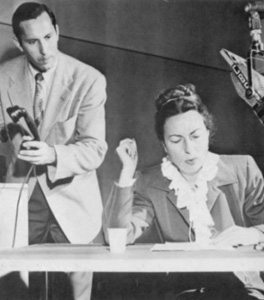
|
|
My Book. Let me sell it to you. The wind came in last night and moved the world around. It was hard to tell the difference until you stepped outside the next morning to get the paper. The air wasn’t just cold; it was cold in a way that allows no alternative. It was from another planet. That’s what the wind did: it pushed away all evidence of autumn, purged the world, then left. Into the void came winter. It made for a noisy night. There’s a loose sheet of metal under the eaves; strong winds bang it up and down. The winds rattled the gates, blew that hellish Charles-Ives harmonica chord through the windows of my study, and so alarmed the house it gave off thumps and groans I’d never heard before. Just as I’d drift off, something would BANG. Slept poorly with garish dreams full of queasy details - I remembered, for example, the feel of Hush Puppies, and the eternal plastic aroma of the pinkish plastic shoe-horn I got from Northport Clothiers as a kid. Why? I hadn’t thought of that thing in decades, but there it was, spinning around in my brain. I even saw the teethmarks left by the dog; he chewed it once. We had the dog for a few months. To recall a forgotten childhood object, recapture its scent and the imprints left by a long-dead canine - well, it reminds you how much is stored and forgotten in your brain, waiting for the Man Behind the Curtain to frantically yank the levers and throw props on the stage. I got up at 3:55, certain (G)Nat had missed the bus – and finally woke at eight feeling as though I’d been sleeping through an aerial bombardment. Of course, this was a day I had to be on NPR. Nine gallons of coffee later, I was in a studio in St. Paul. The NPR producer came on the line for a mike check, and asked me to say “peter piper picked a peck of pickled peppers.” “Peter piper picked a peck of pickled peppers and pulled his plosives,” I said, making sure not to pop my Ps. This seemed to please them, and we were off. It was the first interview for the book, and I didn’t have any pre-fab anecdotes to be rolled out as spontaneous cogitations, so I was winging it all. Went well enough; took some calls (including one from a Bleat fan – thanks, you! And I remember that bedside-reading meebo note you sent, so I had to grin.) I expected questions about the genesis and rationale for the entire project, but you can’t have everything. It's all here. Back in the car and back to buzz; I’d shot some ghost ads on West Seventh on the way to the studio, and put one up. Light day on the site, alas. Well, we shall redouble our efforts on Wednesday. I love Wednesday! It’s an entirely necessary day; keeps the thin gruel of Tuesday from slamming into the sloshy expectations of Thursday and getting temporal spatter all over the place. The very name of the day looks like a dense collapsible barrier that can take an impact from both directions. Wednesday. I stayed up late watching “Sorry, Wrong Number,” a fleshed-out movie version of the lean classic radio drama. There are three versions of the radio play, each of which features Endora from “Bewitched” as the terrified but generally unsympathetic shut-in who overhears a murder plot. She suffers from “nerves,” the usual old unspecified complaint that made women take to their bed in a ruffled gown and take drugs prescribed by doctors who roll their eyes when they leave the room. Barbara Stanwyck plays the role in the movie; Burt Lancaster plays her husband. The story’s done in real-time, which requires flashbacks, and sometimes the flashbacks contain flashbacks. How to indicate nested flashbacks? Simple: Watery dissolves with slow close-ups on the way in; watery dissolve with slow pull-backs on the way out. It’s part of the language of film, and we all speak it. (G)Nat was very young when she informed me that something was a dream because the way the picture went wavy before they told the story. It's almost a cyberthriller, if that horrible word means a lot driven by technology. The main character conducts her research entirely through the telephone. People call her from locations all over town; she deals with operators who actually pronounce nine as “ny-un,” which made me think of an old New Yorker cartoon from the late 20s:
Is that accent still with us? It’s uniquely New York. Anyway, the operators play a role in society long abolished by automation. Think how different the internet would seem if you had to call someone and request a web address. You-uh ar el-a puhleeze. It’s hard to imagine how the world depended on people to put a plug in a socket to connect the call. But then again, it’s hard to imagine how much of the world depends on people, period. Here’s the original from 1948, complete with Paul Frees introducing the program. You can still hear his voice at Disney’s Haunted Mansion, I believe, as well as in endless other voiceovers and radio shows. I’ve also included another version from 1960, also with Agnes Moorehead. Only 12 years separates the two, which seems hard to believe; 1960 belongs to our era, 1948 to theirs. In terms of mere years, it’s the difference between today and 1995. But that seems like a blink of an eye now. Unless you're 18, of course.
The book! You should buy it. Also, there's an Ad Archive update. And a 700-word opening essay at buzz.mn you might enjoy. See you there!
|
|||||||||||||||||||||||||||
...




